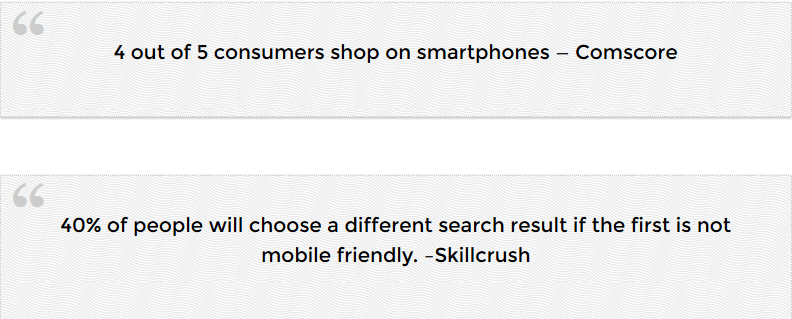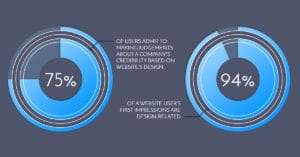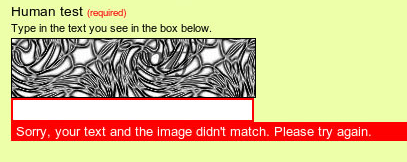10 Tips For Effective Website Design

I have looked through thousands of websites so you don’t have to, and I’ve compiled the best list of web design tips I could possibly ever generate.
1. Plan ahead
Home builders and architects work off blueprints so homes don’t end up with a toilet in the kitchen. Now you might say, I would really like a toilet in the kitchen. How convenient! However, you will probably be the only person to use it since people expect to see a toilet in the (much more private) bathroom.
Make a concise plan for your website, your “blueprints,” and the organization of the website will follow. What is the purpose of the website? To fill out a form? Buy a product? Call a hotline? Educate readers? Define the goal of the website and stick to the goal, instead of adding in a confusing, out-of-place “toilet.”
You would be surprised how many “toilets” I have found within pages of a website. Not only should the entire website have a purpose, but each individual page on the website should also have a purpose. Make every page as if it were a landing page. For many of your users, the page they land on might be the only interaction they have with your website.
A visitor needs to be able to look at your website or webpage and know exactly what to do.
2. Simplify
In the words of Ludwig Miles van der Rohe, “less is more.”
Don’t be afraid to use white space. Sometimes design elements on a website can overwhelm visitors enough to make them give up and leave. Internet users behave lazily. Make their job easy through a very simple web design.
The best websites keep their color schemes to three colors. I understand that some websites will have more than three colors, but keep the theme of your website similar by minimizing and keeping consistent the amount of colors you use.
3. Display your contact information prominently
Some people design their websites as if they were running away from an ex-boyfriend or girlfriend and hide all important contact information.
Make all your contact information prominent and visible. I would recommend placing those details in the header of your website. If your clients have questions or concerns, or if they want additional information, make it easy to find.
Some people have told me that they don’t need contact information in the header because they have a “Contact Us” page. “Contact Us” pages are great—but what if the only page your visitor sees is not the “Contact Us” page?
Stop running away from your clients!
4. Explain which location(s) you serve
Are you a national or local company? This is a pretty easy question, but is it easily answered on your website?
If you have a national website and sell a product, is the cart readily accessible? Which locations can you deliver to? Do you have an easy-to-navigate list of products and services for each location?
If you have a local website, a visitor should be able to see the area that you service. Where are you located? Do you have a local phone number? Do you offer a typical service, like plumbing? Or if you’re selling a product locally, do you have a storefront?
5. Make your website responsive
A responsive website changes the size of the website and viewing area depending on the device. Different phones, tablets, and desktops all have different screen sizes. A responsive website creates the optimal user experience on mobile devices.

If the two stats above do not convince to get a responsive website, I have more statistics from PewResearchCenter:
- 60% of people in the US and UK access the Internet mainly though mobile devices.
- 46% of smartphone owners say their smartphones are something “they couldn’t live without.”
- Nearly two-thirds of adults in the United States own a smartphone.
- 34% of smartphone users go online using mostly their phones, and not on a desktop, laptop, or other device.
- 46% of people using mobile devices report problems while viewing a static site. A static site is a traditional, non-responsive website.
- 44% of people surveyed claim that websites were difficult to navigate on smaller devices.
You might be thinking, I don’t need a mobile-friendly website. My audience doesn’t use mobile devices.
While it is possible that your audience doesn’t use smartphones or mobile devices, it is more likely they do use mobile devices but don’t visit your website because of a non-responsive or non-mobile-friendly website.
Smartphone usage is only increasing. Make sure you design a mobile-friendly and responsive website.
6. Be obvious
You have .05 seconds for users to form an opinion about your website. Unless you are an insect, computer, or NASA experiment, that is not a lot of time, so your website must be very clear in its objective. The design of a website is the very first factor in determining whether a user will continue on your website.
A user should be able to look at your webpage for a split second and know what that page is about. Are you a plumber? What area do you serve? What product can someone purchase on the page? What is this blog post about?
Potential customers make initial impressions immediately when they open a website, including whether they think the website is credible. How is a user going to trust you if they do not trust your website?
Go through your website. Look at the separate pages very quickly and objectively and see if you understand the message of each page. Could your friends and those unaffiliated with the website do the same?
7. Include strong calls to action
What do you want the user to do? Call you for a free consultation? Sign up for a newsletter? Purchase a product? Use your service?
Pretend you own a grocery store and need to sell a brand of cereal. You probably create some kind of promotion or sale to direct users to buy that brand of cereal.
Poor or no calls to action on a website is like the owner of the grocery store crossing his or her fingers hoping that people will stumble upon the brand of cereal they need to sell.
Even though a call to action is so important, 70% of websites don’t have one. Imagine, 70% of all websites cross their fingers hoping the user stumbles upon their product.

I won’t dive into what color or font to use on your calls to action. My point for this tip is to simply have a call to action. Make your call to action extremely visible and noticeable. Over a period of time, test out your calls to action and see which ones convert more business.
As a bonus tip, surround your calls to action with supporting reasons why. (Why should someone call? Why should they sign up? Why should they purchase your product?)
Don’t fall into the trap of a “fingers-crossed website.”
8. Tell visitors who you are
Big-name companies spend billions of dollars on branding each year. Not a single small business I know has billions of dollars to spend on branding (or you would no longer be a small business).
However, there is a secret weapon I know about and will share with you…
Create an “About Us” Page!
“About Us” pages are underutilized yet important elements on a website. You can differentiate yourself from the big businesses by putting a face and name to your business. One case study showed a 102.5% increase in sign-ups after including a picture of a customer or owner.
The “About Us” page is where you can build trust (unless you have an untrusting face-you know who you are) and help visitors get a better idea of who you are. As easy as it sounds, having an “About Us” page could be the difference between someone calling your company or going elsewhere.
Use your personality on this page to answer questions people want to know. Who are you? How long have you been in the area? What makes you special? What makes you… you?
Use your secret “About Us” page weapon!
9. Use a readable font/text size
Have you ever watched a TV commercial where, at the end of the commercial, maybe for as long as 10 seconds, someone talks really fast to go over the terms and conditions? I’ll call this the “fine print.”
A drug commercial might list the possible side effects or diseases you may contract. I think I have even heard some of these commercials list death as a possible side effect. Doesn’t that “fine print” at the end of commercials make you a little nervous because you aren’t 100% sure what is happening? You may feel like you have to sign your life away as a requirement for the product.
Avoid fine print as the main print on your website. I have seen great content on websites lose its value because it was published with minuscule print. If your customer wants to read all the text on your page, let them read it easily with a legible font size. You can test your website’s text is large enough through Google’s Mobile-Friendly Test.

Have you ever had to fill out a CAPTCHA code to prove you were human? (Fun fact: CAPTCHA stands for “Completely Automated Public Turing test to tell Computers and Humans Apart.”) It’s super frustrating and hard to read, and sometimes you just give up and go to the next code.
Don’t put your readers through the CAPTCHA code treatment by using unreadable and crazy fonts. Let your fonts reflect your business, but also make them easy to read. Don’t put your customers through the “fine print” and “CAPTCHA code” experience!
10. Decrease load times
I would like to reiterate how lazy people get when they are online. A slow website is the equivalent of making someone wait 30 minutes at a restaurant when they aren’t even sure what’s on the menu.

No matter how awesome and well-designed your website is, it won’t matter if people never make it to your website because it loads too slowly. Use this website speed test tool for ideas on how to improve the load times of your website.
Wow, those were really good tips, but what you really want to know is what to do with all this information. It’s the moment you have all been waiting for. My suggestion is for you to implement the tips I talked about.
If you skipped straight to the end of this article or skimmed through the headings, go back and read about ex-boyfriends or ex-girlfriends, NASA, and the people that talk really quickly at the end of commercials. All of the tips I’ve presented are necessary for a properly fine-tuned, fully functional website, and I strongly suggest you implement them.
If you have tips that have worked for you, feel free to respond in the comments!
